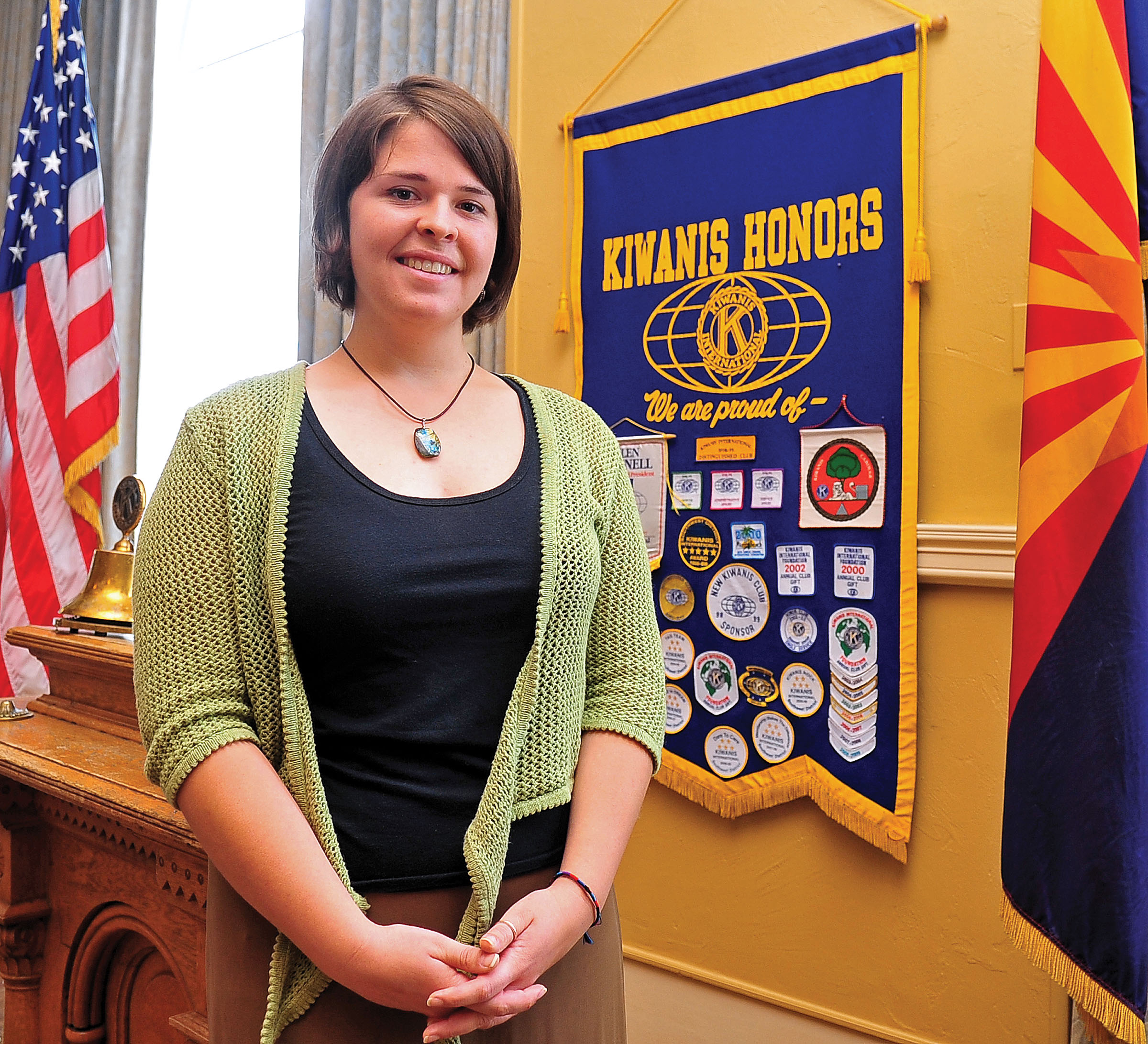
These days, it seems like every millennial is trying to be a role model, whether it’s by designing a multi-billion-dollar app or recording a blockbuster album or creating a critically-acclaimed TV show. Everyone wants to be the influencer, the one who inspires people how to act and how to be.
Kayla Mueller didn’t care about any of that–all she wanted to do was end suffering.
Mueller, the 26-year-old aid worker from Arizona who had been held hostage by the Islamic State of Iraq and Greater Syria (ISIS) since 2013, and whose death was confirmed by the White House Feb 10, lived the antithesis to the hyper-performative brand management practiced by other people her age. She did not want to to be seen helping people: she wanted to help people. She’s the role model we really need.
If we’re looking for tips on how to act and how to be, Mueller’s newly released letter home to her family is a better textbook than any quirky essay collection by a 28-year old or professional memoir. It reveals that Mueller represented the best qualities of the millennial generation–our idealism, our optimism, and our love of our families–without the troublesome ones.
Millennials are generally thought to be more socially aware and idealistic than their parents. And they are increasingly demonstrating their idealism through hashtag activism, socially responsible investing, and mobile charity donation (crowdfunding site Fundly said in 2013 that 58% of its users were 34 or younger.)
But that wasn’t enough for Mueller–she wanted to get her hands dirty, first by demonstrating on campus, then by living in the Palestinian territories (sleeping in front of homes threatened by Israeli bulldozers, and escorting children to school) and finally going to Turkey to provide support to Syrian refugees. “I will always seek God,” she wrote in a letter to her family in 2011, before she was kidnapped on her way to a bus station in Syria. “Some people find God in church. Some people find God in nature. Some people find God in love; I find God in suffering. I’ve known for some time what my life’s work is, using my hands as tools to relieve suffering.”
We’re also known as an optimistic generation, but much of the research on our sunny attitude has been done in the context of financial sluggishness–53% of millennials think they don’t earn enough money now, but will in the future, and three out of four believe they’ll achieve their professional goals. Mueller took that optimism to the next level. Even when she was being held captive by a brutal terrorist group she still managed to hope for the best.
“I have been shown in darkness, light + have learned that even in prison, one can be free. I am grateful,” she wrote. “I have come to see that there is good in every situation, sometimes we just have to look for it.”
Those of us who are pouty about our dead-end internships should take note.
Millennials are known to be closer with their parents than previous generations were– over half of us consider one of our parents our best friend. But Mueller’s devotion to her family was so profound that the thought of their pain eclipsed her own suffering. “If you could say I have ‘suffered’ at all throughout this whole experience it is only in knowing how much suffering I have put you all through; I will never ask you to forgive me as I do not deserve forgiveness,” she wrote.
It’s not just that Mueller exemplified the best qualities of her generation–she also repudiated the bad ones. The stereotype of the “whiny” millennial could never apply to her. Because perhaps what’s most striking about Mueller’s letter is the lack of complaining, the omission of any information that might have pained her family to hear. “Please know that I am in a safe location, completely unharmed + healthy (put on weight in fact),” she wrote. “I have been treated w/ the utmost respect + kindness.” While it’s possible that this is true in Mueller’s case–another hostage told the New York Times he believed the female captives were treated relatively well– it’s also possible that she concealed elements of her captivity to spare her family pain. Unnamed US officials even suggested to ABC News that Mueller may have been “given” as a bride to an ISIS commander, which is consistent with the terrorist group’s history of rape and forced marriages with female captives.
So if millennials are looking for role models, we can look past Taylor Swift and Mark Zuckerberg. Kayla Mueller–who never courted the limelight–represents the best in all of us. I look up to her.
More Must-Reads from TIME
- Why Trump’s Message Worked on Latino Men
- What Trump’s Win Could Mean for Housing
- The 100 Must-Read Books of 2024
- Sleep Doctors Share the 1 Tip That’s Changed Their Lives
- Column: Let’s Bring Back Romance
- What It’s Like to Have Long COVID As a Kid
- FX’s Say Nothing Is the Must-Watch Political Thriller of 2024
- Merle Bombardieri Is Helping People Make the Baby Decision
Write to Charlotte Alter at charlotte.alter@time.com